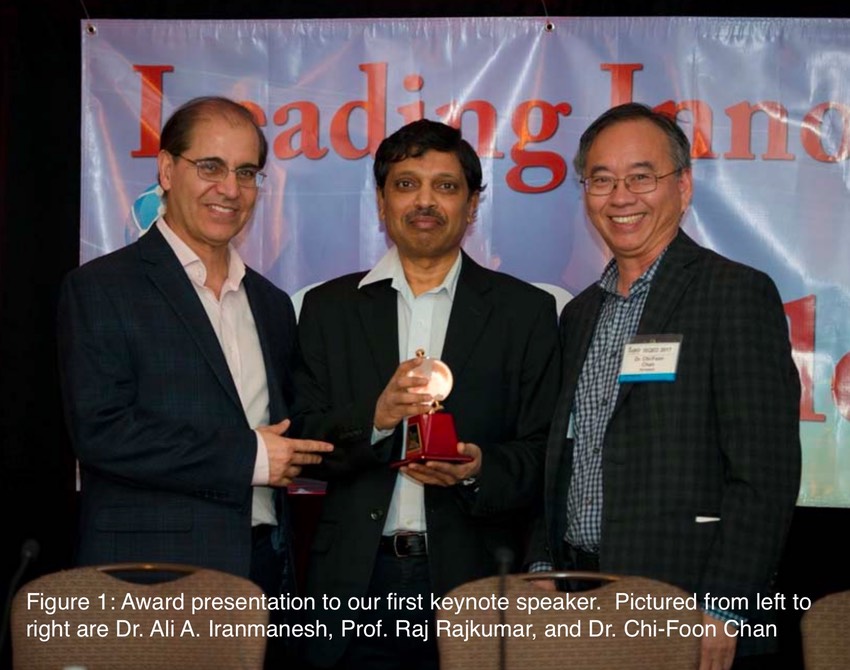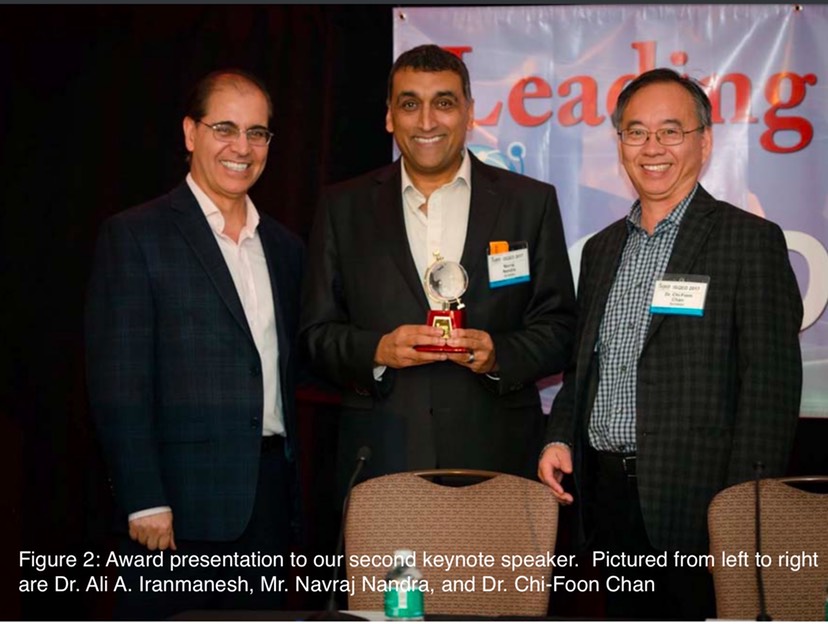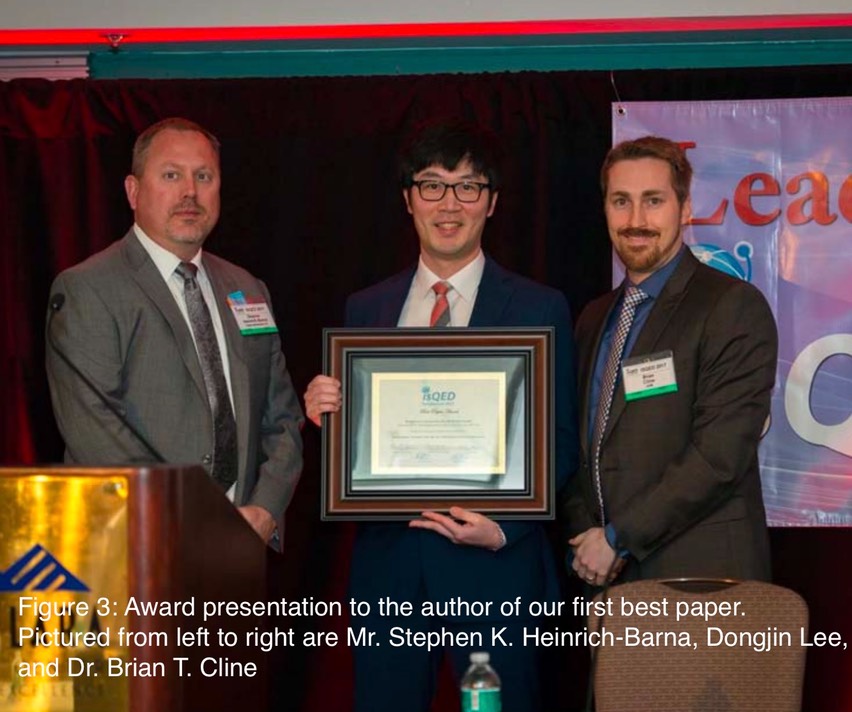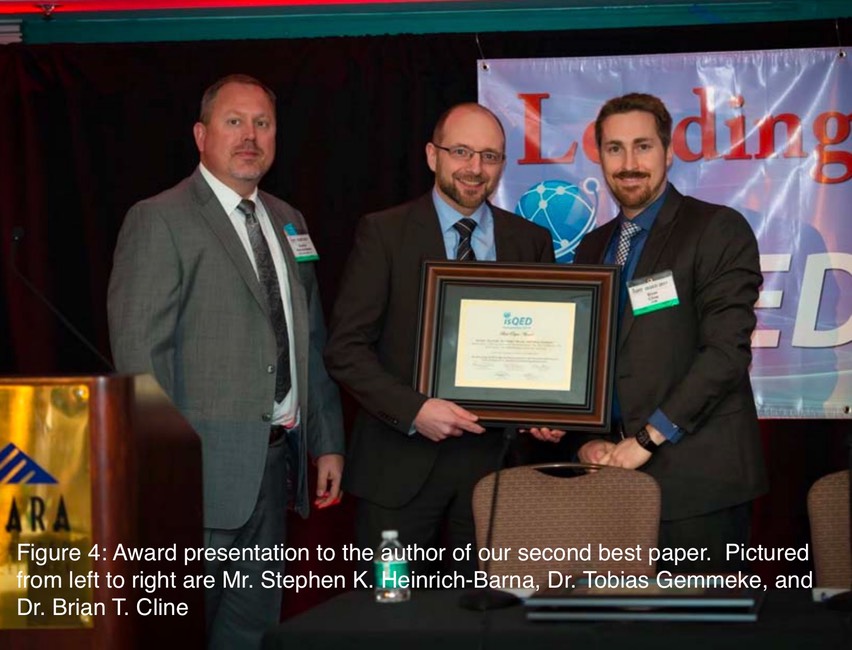ISQED 2017 Conference Report
International Symposium on Quality Electronic Design (ISQED)
March 14‐15, 2017
Santa Clara Convention Center, Santa Clara, CA
Technical Sponsors: IEEE CASS, IEEE EDS, IEEE RS

INTRODUCTION
ISQED is the premier interdisciplinary and multidisciplinary electronic design conference aimed at bridging the gap among electronic/semiconductor ecosystem members and providing electronic design tools, integrated circuit techniques, semiconductor manufacturing technologies, packaging technologies, and assembly and test methodologies to achieve design quality. The 18th ISQED continued to provide and foster a unique opportunity to participants to interact and engage in cutting edge tutorials, presentations, and panel and plenary sessions. This report summarizes the conference activities, highlights the achievements, and provides a recommendation for the following years.
Four embedded tutorials provided in‐depth studies on two of the most popular emerging fields in the semiconductor industry: the Internet of Things (IoT), Security and Cyber‐Physical Systems. The two‐day technical program with three parallel sessions included papers highlighting the latest trends in electronic circuit and system design & automation, test, verification, sensors, security, semiconductor technologies, and cognitive computing. ISQED 2017 introduced a dedicated call for special sessions, for the first time, in order to raise the visibility of emerging research areas at the conference. A number of special session proposals were submitted, reviewed, and two special session proposals were accepted and presented at the conference. The special sessions themes for ISQED 2017 were:
- Design Opportunities and Challenges in Non‐Volatile Technologies , and
- Lightweight Security for Internet‐of‐Things: Attacks, Countermeasures and Efficient Implementations.
 Overall, 9 different presentations were given during the two special sessions. Additionally, this year’s program included 9 invited talks from a number of distringuished speakers across industry and academia, and their topics ranged from Neuromorphic Architectures to On‐Chip Oscillators to Low‐Power MEMS‐based sensors.No new tracks were added in 2017.
Overall, 9 different presentations were given during the two special sessions. Additionally, this year’s program included 9 invited talks from a number of distringuished speakers across industry and academia, and their topics ranged from Neuromorphic Architectures to On‐Chip Oscillators to Low‐Power MEMS‐based sensors.No new tracks were added in 2017.
SPONSORS AND EXHIBITORS
Technical sponsors were IEEE, IEEE Electron Devices Society, IEEE Circuits and Systems Society, and the IEEE Reliability Society. Corporate sponsors were Synopsys, Mentor Graphics and the Silicon Valley Polytechnic Institute. Sponsors were recognized through announcements and slide presentations during the plenary session and the luncheon awards on March 14.
PLENARY SESSION, AWARDS, AND KEYNOTES

Plenary sessions were organized around the themes of the “Driverless Vehicles: Looking Ahead” and “Automotive, IoT Driving New Semiconductor IP and Compliance Requirements.” Two distinguished speakers from industry and academia discussed breakthroughs and future trends in the era of IoT, with a focus on security vulnerabilities, attacks, and solutions for IoT.
The conference opened with Plenary Session 1P on March 14. Professor Raj Rajkumar, currently the George Westinghouse Professor at Carnegie Mellon University, presented a keynote talk entitled, “Driverless Vehicles: Looking Ahead.” Navraj Nandra, Senior Director of Interface IP at Synopsys, presented a keynote talk entitled, “Automotive, IoT Driving New Semiconductor IP and Compliance Requirements.” The plenary session in the morning was attended by approximately 70 people.
On March 14, luncheon awards and a luncheon panel were held at noon. The conference organizing committee and technical program committee members were recognized during the awards ceremony. Paul Tong was awarded the ISQED Fellowship. Two papers (listed in the ISQED 2017 Program Booklet) were awarded the Best Paper Award. The luncheon panel discussed Cybersecurity Challenges for the Automotive Industry, and included members from STEER, Toyota Info Technology Center, and the University of Maryland.
TECHNICAL SESSIONS AND EMBEDDED TUTORIALS

There were two sets of technical sessions on March 14 and three sets of technical sessions on March 15. Each set of technical sessions consisted of three parallel breakout sessions for oral presentations. The total number of oral presentations was 65, which included a number of invited talks. The embedded tutorial presentations took place on March 14 and 15 with four experts from industry and academia focusing on Accelerated DFT, Cyber‐physical systems, and Computational methods to Uncover Targeted Therapies for Cancer. Approximately 60 people attended the embedded tutorials on the first day, and around 45 people attended the embedded tutorials on the second day (which were all standalone sessions). Please see the conference booklet for technical sessions’ titles, a list of papers presented, and tutorial presentation titles and speakers.
RECOMMENDATION FOR NEXT YEAR
The tutorial attendance was high given the embedded nature of the program and no parallel sessions were competing for the audience. The committee recommends continuing the “embedded” aspect of the tutorials in the program, but keeping them isolated in the program to encourage all conference attendees to attend the tutorial sessions. Merging the tutorials into the technical program, along with careful selection of the topics and speakers should keep tutorial attendance at acceptable levels. The March date continues to be an issue with the availability of the location coming in as a difficult challenge.
We thank all of our sponsors for their support and participants for an outstanding conference in 2017.
Brian T. Cline, TPC Chair, ISQED 2017
Stephen K. Heinrich‐Barna, TPC C0‐Chair, ISQED 2017